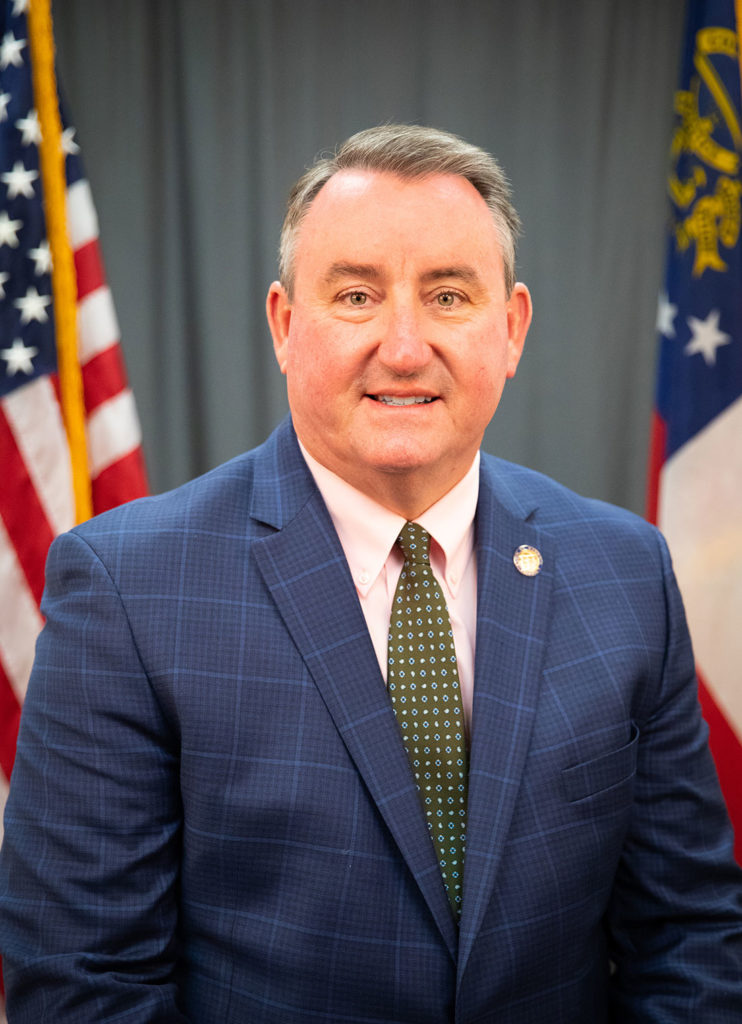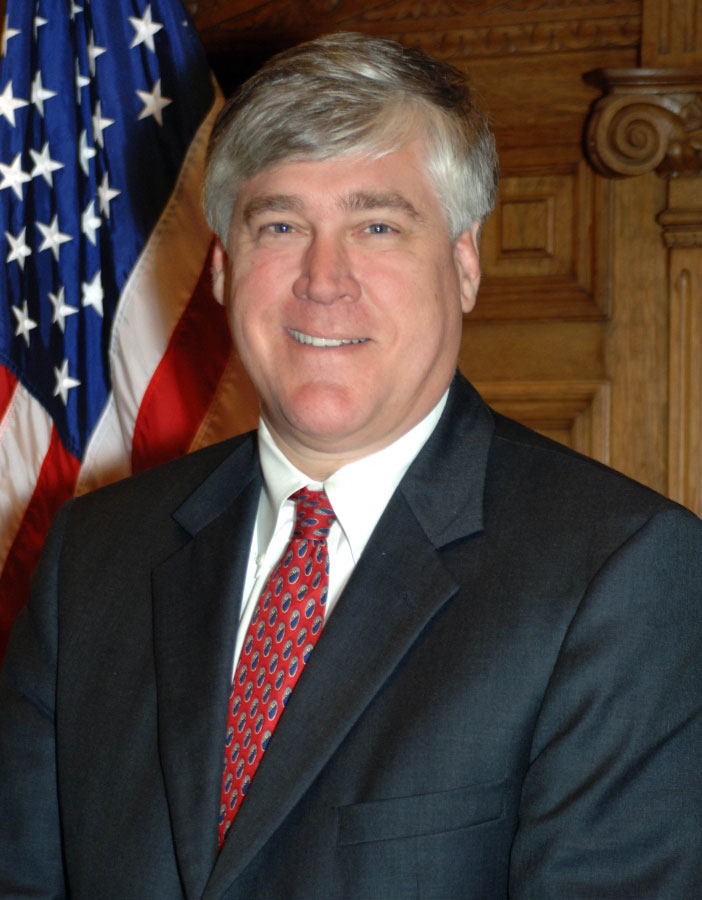As a Latino and a progressive from overwhelmingly white, conservative Habersham County, Zachary Perry knows what it’s like to be in the minority.
Perry found his political voice in high school when a social media post he wrote in favor of same-sex marriage went viral locally. Later, he moved to Athens and started tending bar.
“I started to really notice the disparities between the two Athens,” he said, “You’d see somebody pull up in an $80,000 car in front of a guy asking for money.”
It was those disparities that inspired Perry to attend UGA law school, where he is focusing on affordable housing. It also inspired him to run for state Senate in a district where he once again finds himself in the minority.
In 2018, Sen. Bill Cowsert (R-Athens) defeated his Democratic opponent by 20 points in District 46. In neighboring District 47, Sen. Frank Ginn (R-Danielsville) beat Dawn Johnson by 32. This year, Perry is taking on Cowsert, while Johnson is in a rematch with Ginn.
“No races should be uncontested,” Perry told Flagpole.

Johnson—who lives in Barrow County with her husband, Joe, a well-known local crime reporter—works at a nonprofit that helps students with developmental disabilities gain employment.
“I’ve seen a lot of kids who are struggling, both with not being able to access internet, but being able to access basic services in Georgia,” she said. “That’s a lot of the reason I got into this race.”
The Republican incumbents and Democratic challengers fundamentally disagreed about the role of government during a recent forum sponsored by the Athens and Oconee County chambers of commerce.

On recovering from the coronavirus recession, “Moving forward, the best thing we can do is get government out of the way and let the private sector get to work making the economy strong,” said Ginn, an engineer and former city manager who was first elected in 2010.
Johnson said the state government should be fixing roads and bridges, laying broadband internet lines and preparing for green manufacturing jobs making windmills and solar panels to help the economy recover.
“Anytime we’ve ever had catastrophic events happen to our economy, the government has provided a lot of the solutions,” she said. Perry agreed, noting that he was laid off from March until July and only survived because of unemployment payments.

Cowsert—a lawyer who took over the Senate seat from his brother-in-law Brian Kemp in 2006—said he is in favor of low taxes and few regulations.
“Those are just barriers to businesses,” he said. “They add costs, headaches and trouble.” Perry, though, said regulations are necessary to protect workers.
Cutting taxes isn’t going to pay for better infrastructure or education, Johnson added, noting that Republican legislators cut $1.5 billion from public education this year. Although they voted for the cuts, both Ginn and Cowsert said education is a top priority, especially technical colleges.
One issue all four candidates agreed on was the need for broadband internet access in rural areas—an issue Cowsert said he’s been working on for the past two years.
“That’s especially important now that we’re dealing with the pandemic,” he said. “I think everybody realizes how important it is to have high-speed internet connections, and they’re not available everywhere in this state.”
Fast internet is a necessity for distance learning, selling products online and virtual medicine, which Cowsert said is a “game-changer” for rural areas where hospitals are closing. To help struggling hospitals and uninsured Georgians, Johnson proposed accepting federal funds to expand Medicaid and allowing families who aren’t currently eligible to buy into PeachCare.
Perry listed criminal justice reform as his top issue. Whereas Cowsert co-sponsored a bill that would have repealed some of the reforms under Gov. Nathan Deal and required judges to set cash bail, Perry wants to get rid of cash bail entirely.
“It unfairly targets low-income individuals who are waiting on their day in court,” he said.
If accused criminals are a threat to society, they should stay in jail until their trial, Perry said, but if not, they should be released so they can go back to work and to their families. Text reminders are an effective way of getting people to show up for court, he said.
Cowsert said he would address poverty by creating high-paying jobs.
“I don’t think people are inherently lazy,” he said. “You offer people a chance, they want that self-worth, that opportunity to provide for their family.”
Like what you just read? Support Flagpole by making a donation today. Every dollar you give helps fund our ongoing mission to provide Athens with quality, independent journalism.










